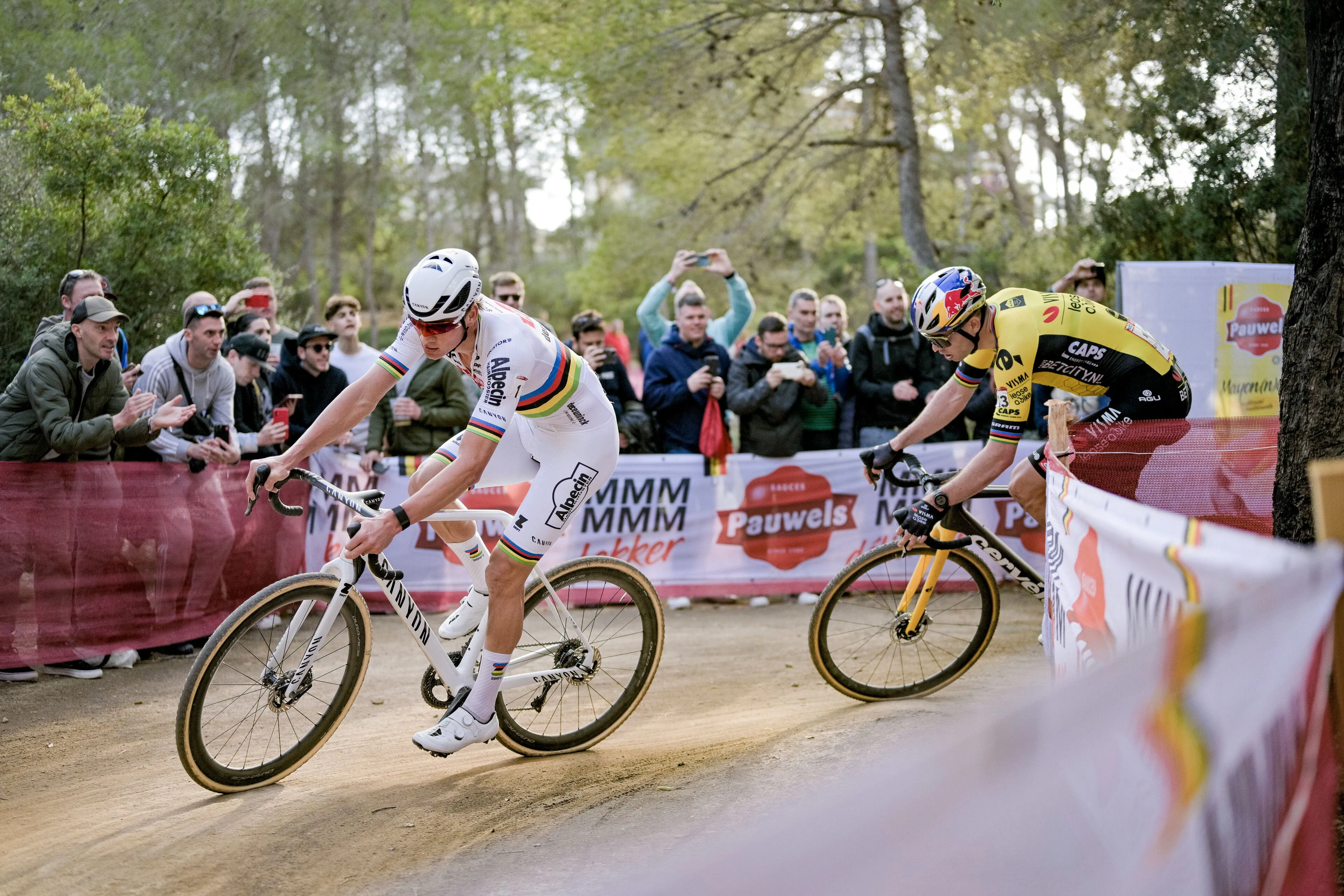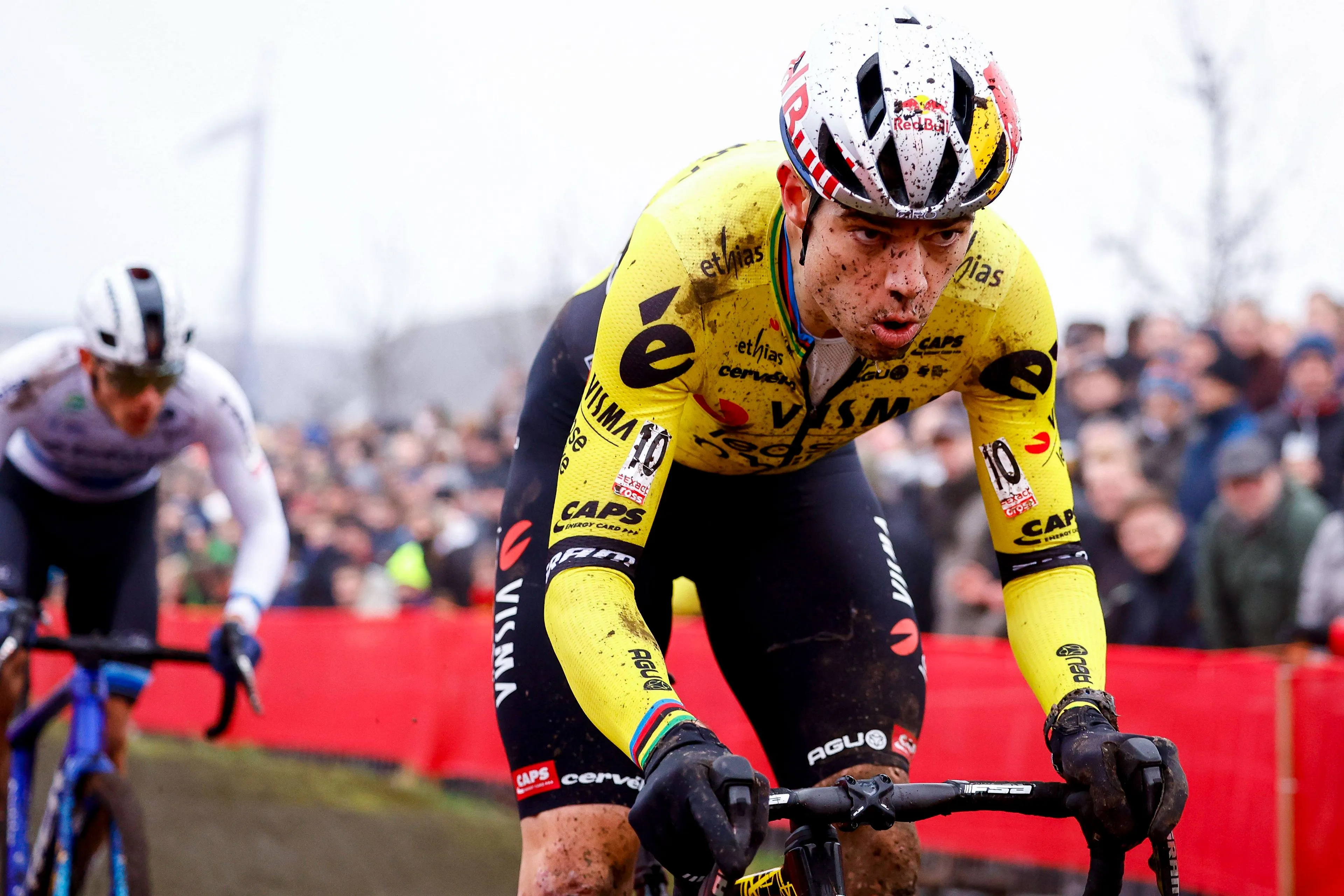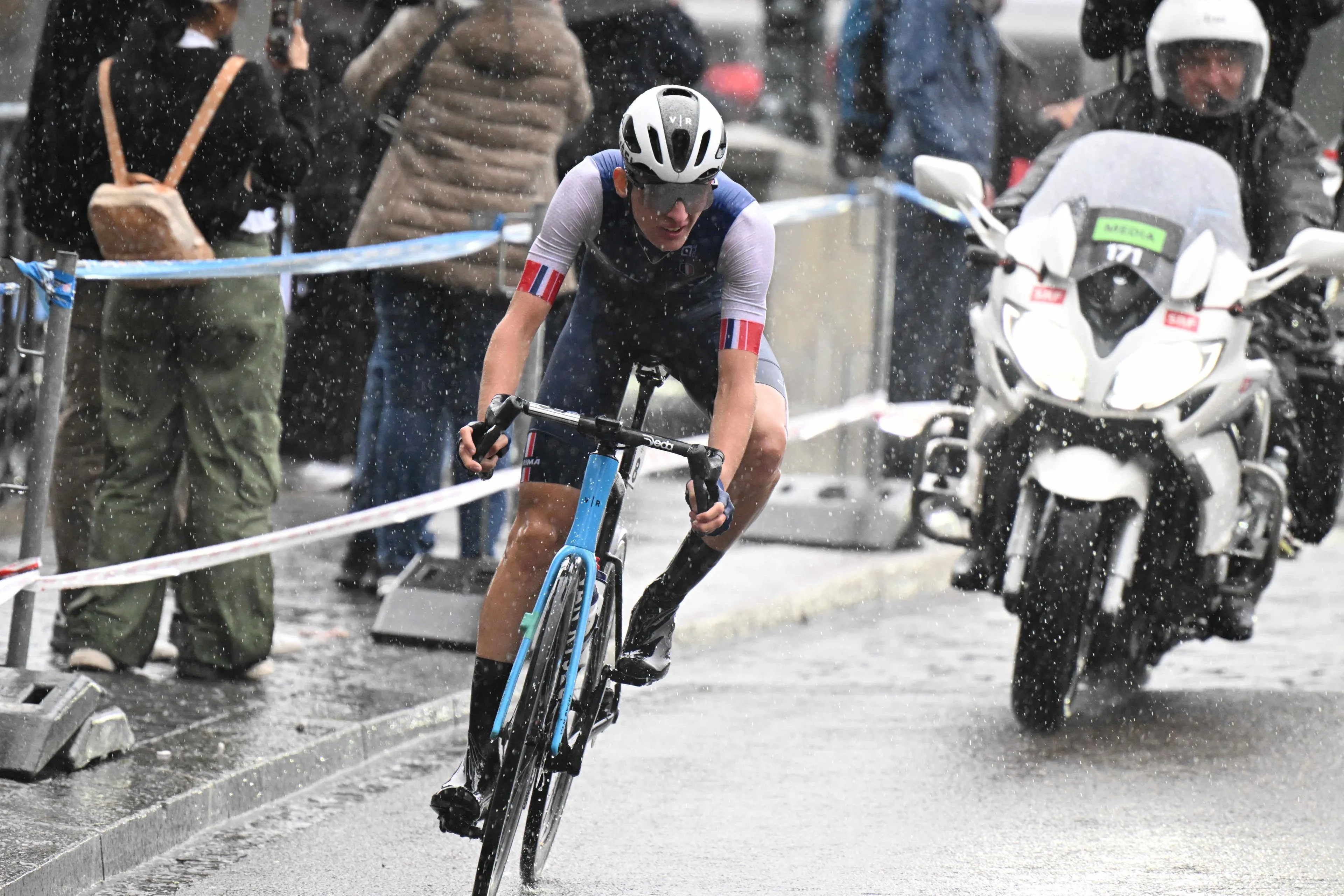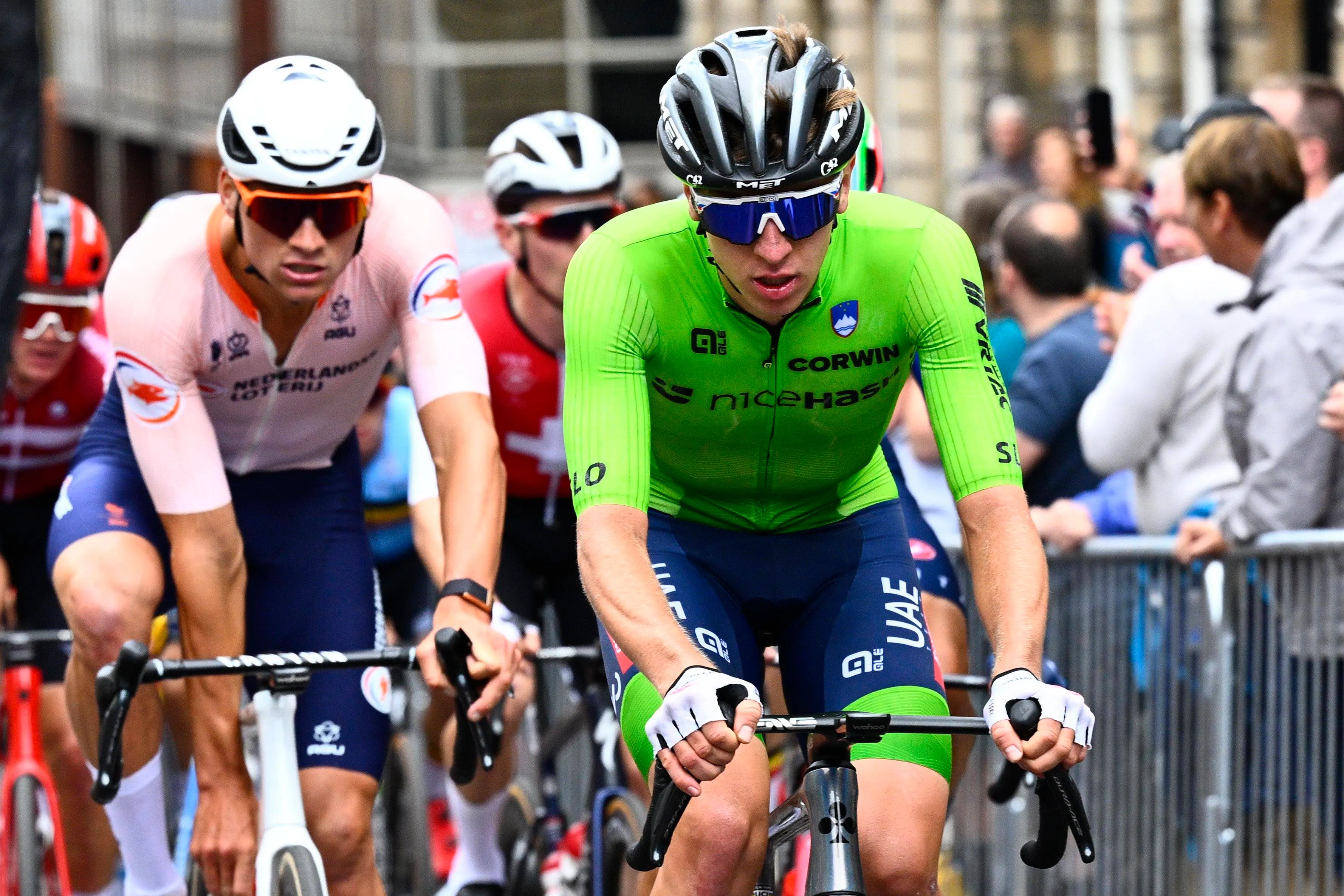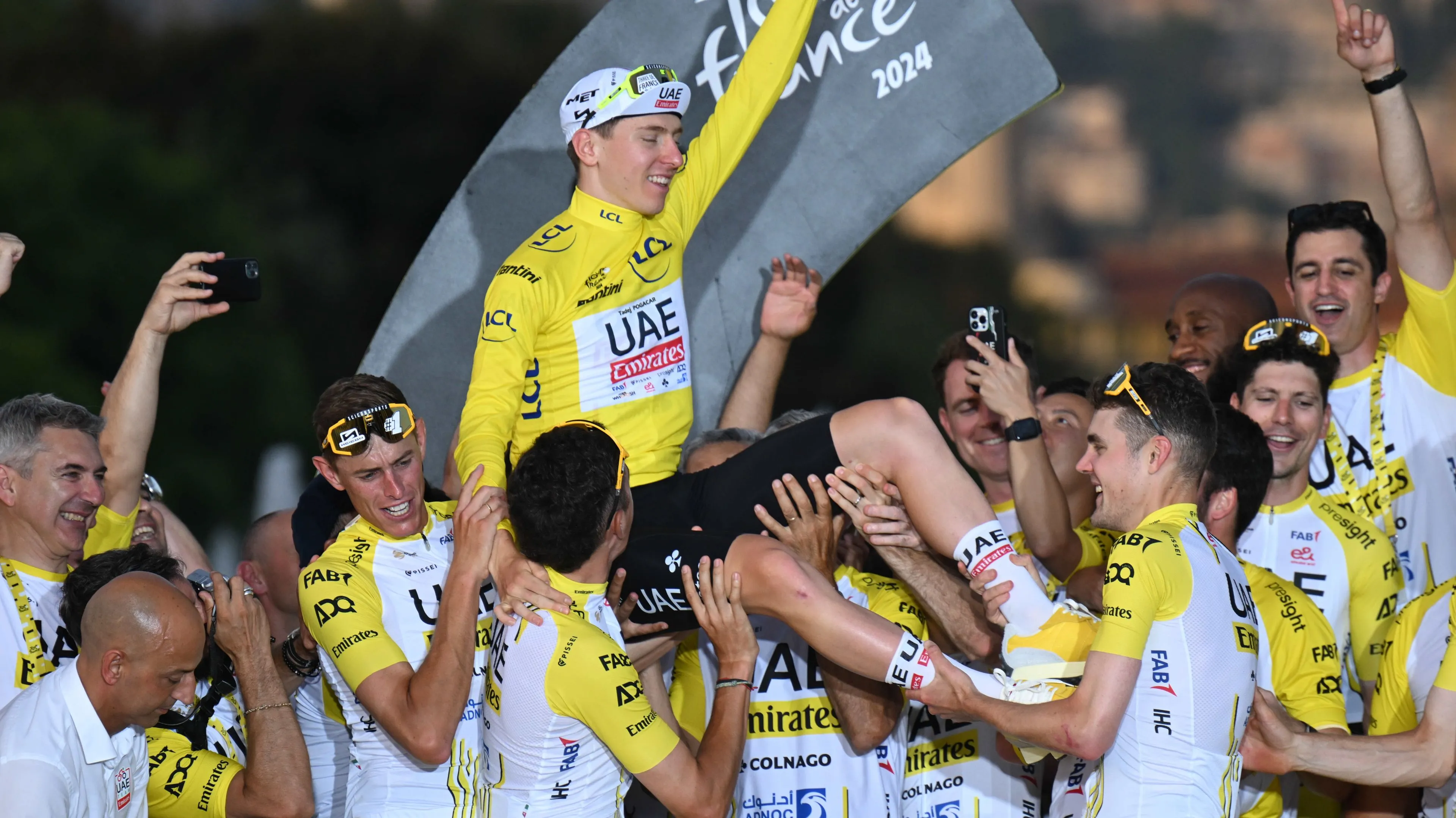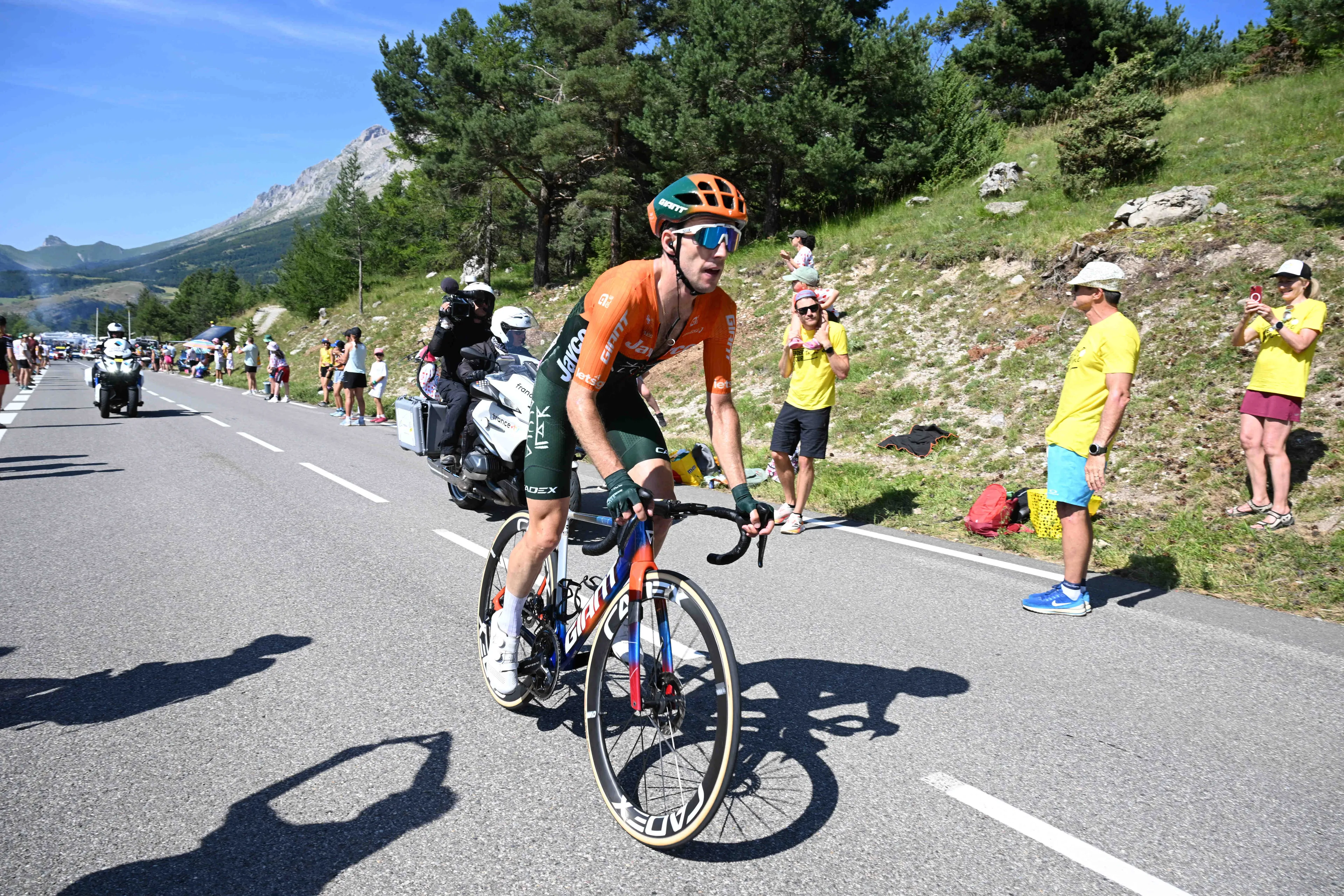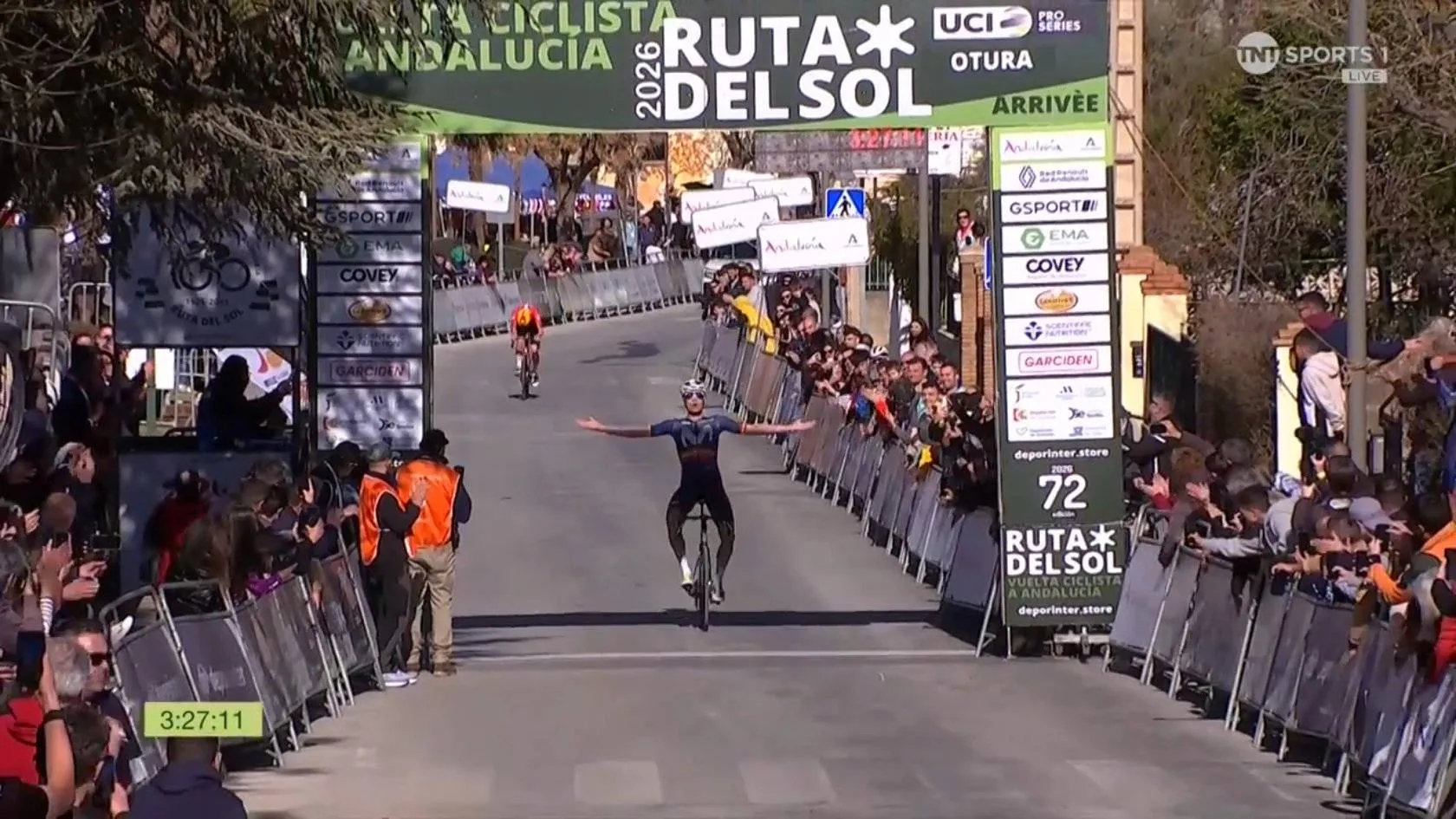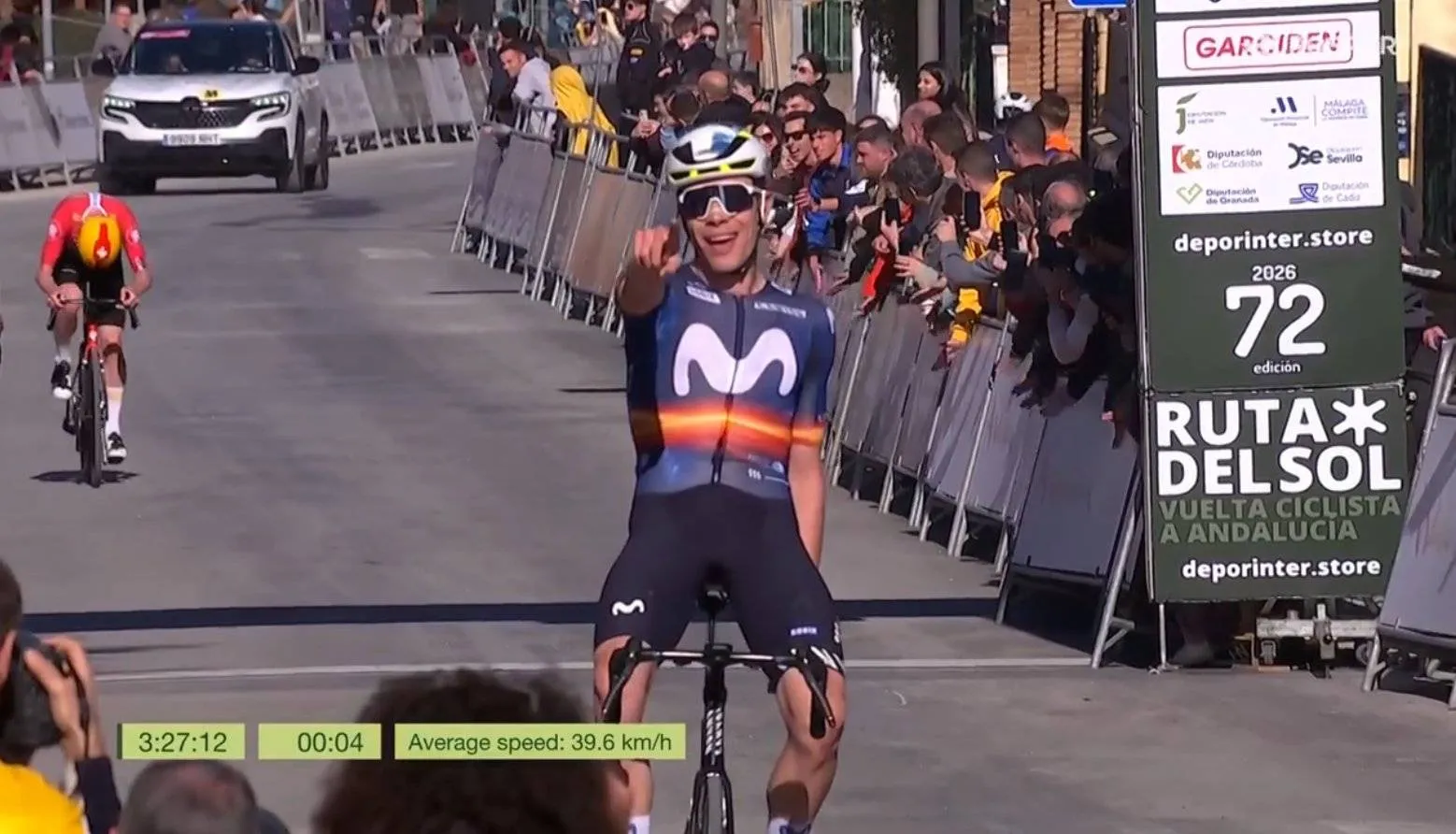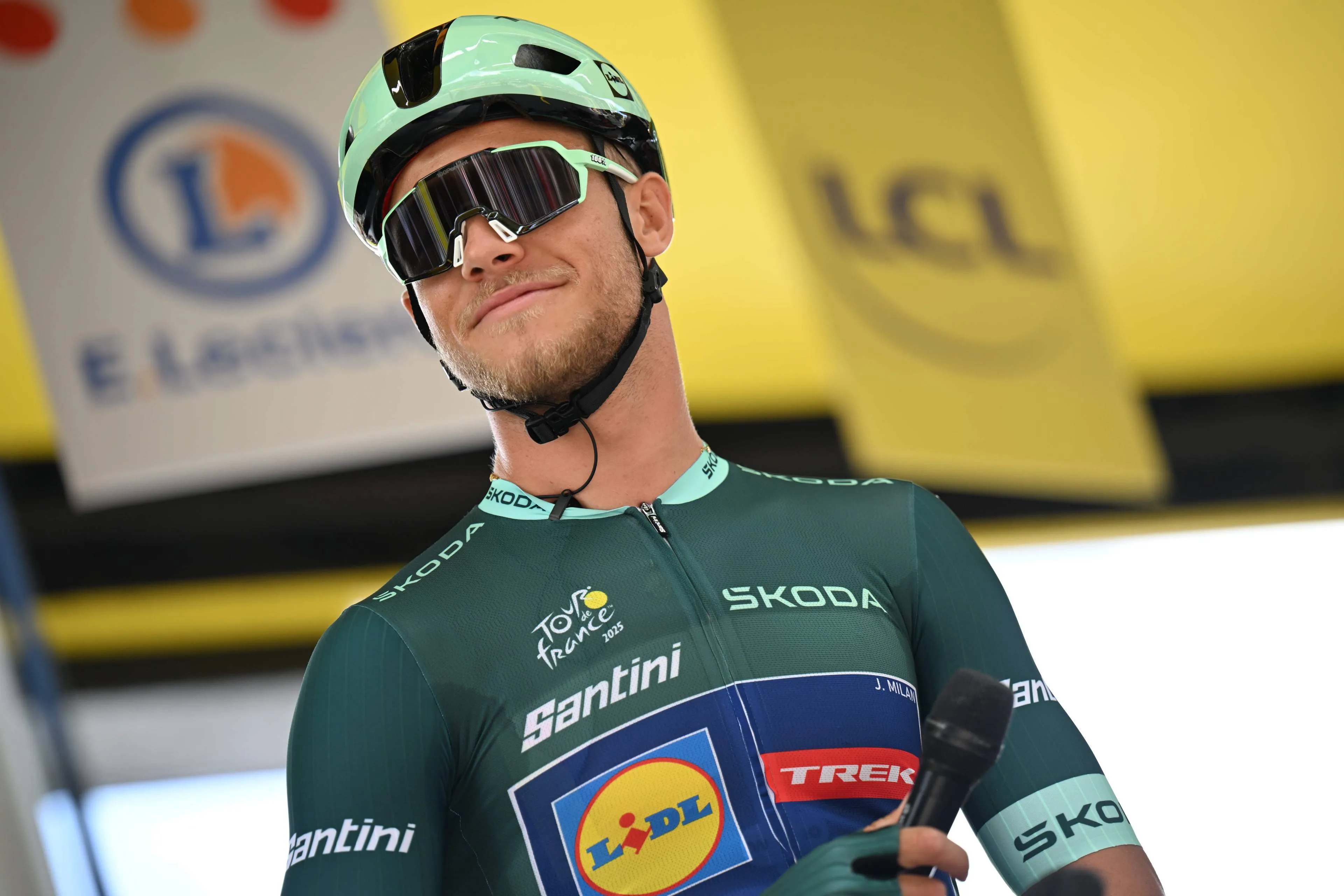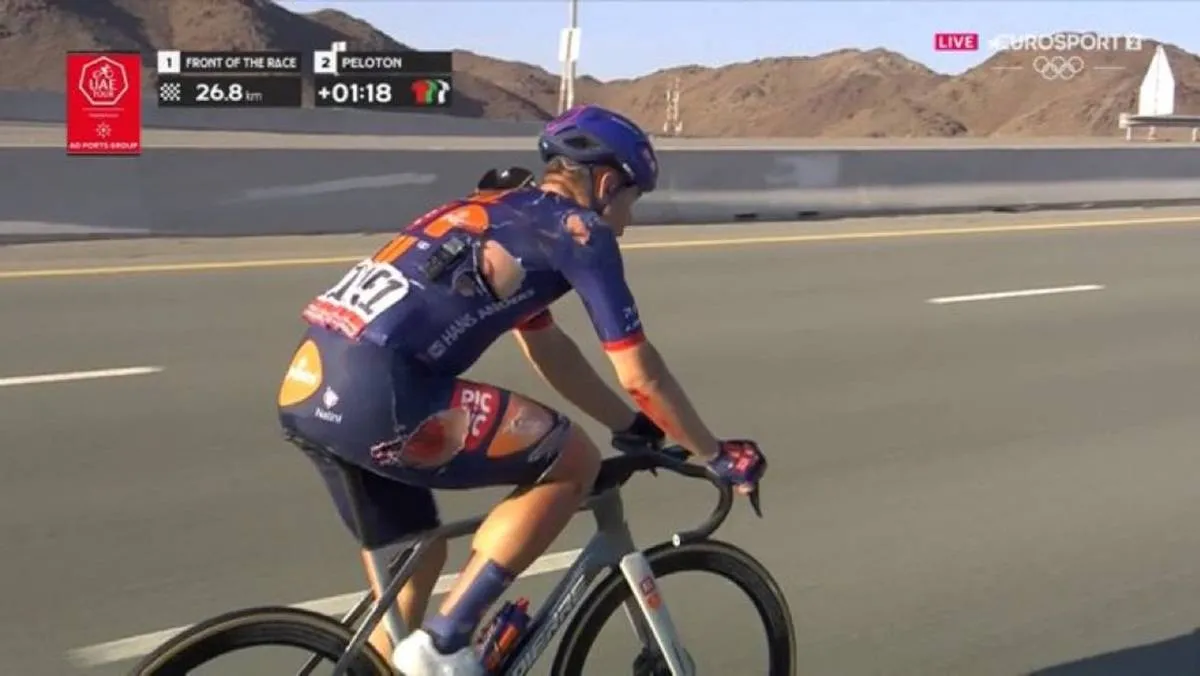ANALYSIS | Mathieu van der Poel: redefining greatness beyond the Tour de France
CyclingMonday, 06 January 2025 at 14:45
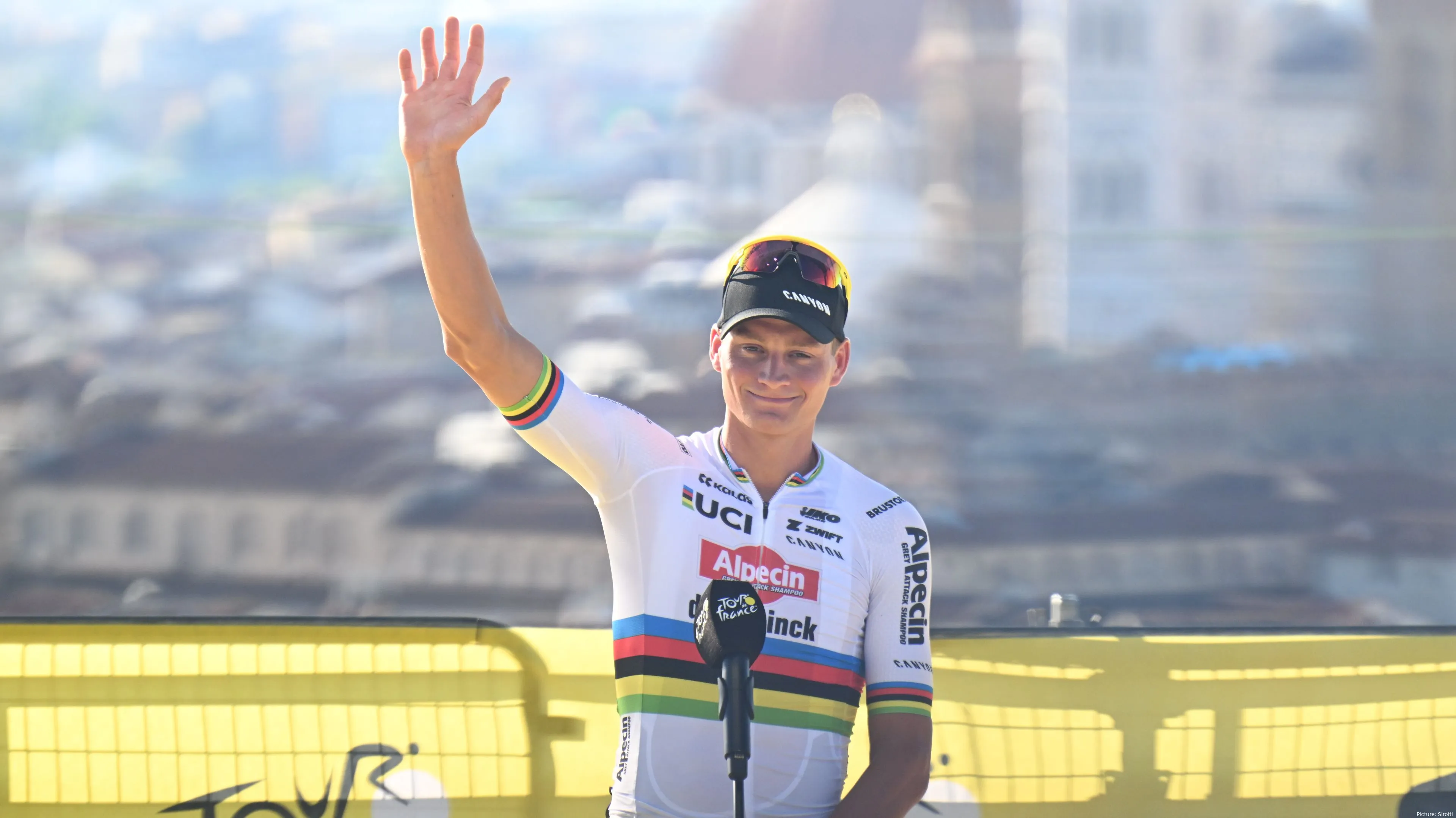
Mathieu van der Poel is one of the most celebrated cyclists
of his generation. With 50 career victories, six Monument wins, and a world
title on the road, the Dutchman has cemented his status as one of the greatest
riders of all time. Yet, his relationship with the Tour de France, cycling’s
most iconic race, remains strained. In an honest reflection during an interview
with Sporza, van der Poel admitted: “It’s a race that I don’t really like.
Apart from trying to win stages and wear the yellow jersey, there’s not much to
gain for me in the Tour.”
This statement underscores the unique frame through which van
der Poel views his career. For a rider who thrives on the drama and
unpredictability of one-day classics, the Tour’s structured focus on general
classification (GC) and sprint stages offers limited appeal. “I’d rather ride
five races in which I’m competing to win than 20 stages in which I’m not
competing for the win half the time,” he added, a sentiment that challenges
traditional notions of cycling glory.
Read also
The Tour and Classics specialists
The Tour de France is a stage for the world’s best riders,
and there is no question that van der Poel belongs in this category. However,
the Tour’s evolution over the years has increasingly favoured GC contenders and
sprinters, leaving little room for classics specialists like van der Poel to
shine. In the current format, stages often fall into two extremes: flat terrain
for the sprinters or punishing mountain stages for the GC riders. The
in-between stages that might suit a rider of van der Poel’s calibre are becoming
increasingly rare, although the first week of this year’s Tour could give Van
der Poel more chances.
This trend is not lost on van der Poel or his father, Adrie
van der Poel. Adrie, himself a former professional cyclist, remarked in an
interview during the 2024 Tour, “What can you do with his type of rider in the
Tour? There are hardly any stages for true classics specialists.” The lack of
opportunities for riders like Mathieu raises an important question: should the
Tour de France reconsider its stage design to better cater to a broader range
of talents? After all, the Tour is as much about showcasing the diversity of
cycling as it is about crowning a GC champion.
Read also
For van der Poel, the thrill of racing lies in the intensity
and unpredictability of classics and other one-day events. These races, such as
Paris-Roubaix and the Tour of Flanders, are tailored to riders with his
skillset. They demand explosive power, technical mastery, and a willingness to
take risks, all of which are hallmarks of van der Poel’s riding style. In
contrast, the Tour’s focus on endurance over three weeks, coupled with its
emphasis on team dynamics and strategy, often leaves little room for riders
like him to shine.
Van der Poel’s Tour highlights
Despite his mixed feelings, van der Poel’s Tour de France
appearances have not been without their moments of brilliance. In the 2021
Tour, he delivered an unforgettable performance, winning Stage 2 and claiming
the yellow jersey. The victory was not just a show of his explosive power and raw
talent but also an emotional tribute to his late grandfather, Raymond Poulidor,
a Tour legend who never wore yellow himself. Van der Poel held the maillot
jaune for six days, thrilling fans with his aggressive riding and reaffirming
his status as a once-in-a-generation talent.
This memorable stint in yellow highlighted what van der Poel
can bring to the Tour when the conditions suit him. It also underscored the
potential for creating more stages that cater to riders with his abilities.
However, such opportunities have been few and far between in subsequent
editions of the race.
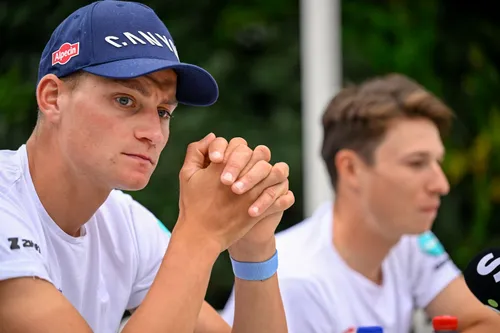
Mathieu van der Poel has rode in support of Jasper Philipsen in the most recent editions of the Tour de France
Since then, van der Poel’s role in the Tour has shifted. In
2023, he rode in a supportive capacity, leading out his Alpecin-Deceuninck
teammate Jasper Philipsen to multiple stage wins and the green jersey. While
his efforts were instrumental to the team’s success, van der Poel expressed a
desire to do more than just act as a “delivery man.” Speaking to The
Independent ahead of the 2024 Tour, he said, “I want to do something for myself
in the Tour as well. That’s my biggest goal.”
This sentiment reflects a broader frustration shared by many
classics specialists who feel sidelined by the Tour’s current format. For
riders like van der Poel, the race offers limited opportunities to showcase
their full range of skills, making it difficult to balance personal ambitions
with team commitments.
Read also
Van der Poel vs Van Aert
The rivalry between Mathieu van der Poel and Wout van Aert
is one of the most compelling narratives in modern cycling, both on and off the
road. Both riders are versatile, with the ability to excel across disciplines,
but their career trajectories on the road have actually highlighted contrasting
strengths. Van der Poel has dominated the classics, with victories in
Paris-Roubaix, the Tour of Flanders, and Milano-Sanremo. In contrast, van Aert
has made his mark in Grand Tours, amassing multiple stage wins while also
supporting Jonas Vingegaard’s GC ambitions at Team Visma | Lease a Bike. Whilst
van der Poel has just one Tour stage win to his name, Van Aert has just the one
monument win in his career so far.
What sets van Aert apart in the Tour is his ability to
balance team duties with personal success. Despite his role as a key domestique
for Vingegaard, van Aert has consistently found opportunities to hunt for stage
wins. This dual approach has earned him success in France and raised questions
about whether van der Poel could adopt a similar strategy while supporting
Philipsen in the sprints. Could van der Poel learn from van Aert’s ability to
maximise his chances in the Tour without compromising team goals?
Read also
On the flip side, van Aert might look to van der Poel’s
success in the classics as a blueprint for improving his own Monuments record.
Despite his incredible talent, van Aert has often fallen short in cycling’s
biggest one-day races, a serious contrast to van der Poel’s six Monument wins.
The key difference lies in their approach: van der Poel’s laser focus on
specific objectives has allowed him to peak at the right moments, whereas van
Aert’s broader commitments might dilute his effectiveness in the classics.
Their contrasting approaches also highlight the broader
challenges faced by multi-disciplinary riders in modern cycling. Balancing
personal ambitions with team obligations is a delicate art, and both van der
Poel and van Aert offer valuable lessons in how to navigate this dynamic. For
van der Poel, the key may lie in finding a way to prioritise his strengths
without sacrificing his contributions to the team.
Read also
Does the Tour need to change?
Van der Poel’s candid comments about the Tour highlight a
broader issue in professional cycling. While the Tour de France will always
prioritise GC battles and sprint finishes, there is a strong case for designing
stages that better cater to classics specialists. These riders bring a different
element to the sport, thrilling fans with their attacking style and ability to
tackle races in different ways compared to the usual stereotypical finishes to
any mountain or sprint stage. Incorporating more stages that suit their
strengths would not only make the race more diverse but also ensure that the
Tour remains a true showcase of cycling’s most talented riders.
As van der Poel continues to carve out his unique legacy,
his relationship with the Tour will remain a fascinating subplot in his career.
Whether or not the race evolves to accommodate riders like him, one thing is
certain: Mathieu van der Poel’s legacy as one of the very best is secure
regardless of if he never wins a second Tour de France stage.
Read also
While many riders use the spring classics as a warm-up for
their summer campaigns, van der Poel has consistently shown that the spring is
where he truly excels. His victories in races like the Tour of Flanders and
Paris-Roubaix have become defining moments of his career, as he thrives on the
cobbles and in the brutal conditions in March and April. These performances
have also reinforced his preference for one-day races over stage races, where
his explosive power and handling skills are best utilised.
For van der Poel, the classics represent the pinnacle of
cycling. The unpredictable nature of these races, combined with their rich
history and challenging courses, makes them the ultimate test of a rider’s
skill and maximum ability on a single day. In contrast, the Tour’s emphasis on
endurance and consistency over three weeks often feels at odds with his
strengths, leaving him to question his role in the race.
Read also
Van der Poel’s comments about the Tour also raise important
questions about the future of cycling. As the sport continues to evolve, there
is a growing need to ensure that its biggest events remain inclusive and
representative of all disciplines. By embracing a more diverse range of stage
designs, the Tour de France can not only attract a wider audience but also
provide a platform for riders like van der Poel to shine.
Ultimately, the Tour’s ability to adapt will determine the
presence of the classics riders in the coming years. By recognising the value
of classics specialists and creating opportunities for them to thrive, the race
can reaffirm its status as the ultimate celebration of cycling. For van der
Poel, this could mean a renewed sense of purpose in the Tour and a chance to
add to his already illustrious legacy, as he is no mere lead-out man.
claps 2visitors 2
Just in
Popular news
Latest comments
- Then you carry on if that's what makes you happyslappers6619-02-2026
- Fabio cannot catch a break.mij19-02-2026
- OK, today is the "air conditioner"... yesterday was a cramp... on saturday a bee will sting him in his tongue... his tongue will swell up and mustafa gets no oxygen. Because of his swollen tongue, Remco won't be able to give us a new excuse. Remco and the spanish rat Ayuso should be on the same team. They both have a ton of excuses and both of them are liars. Ad acta.Mou-Cro-HR19-02-2026
- Florian Lipowitz is secretly happy
 Rafionain-Glas19-02-2026
Rafionain-Glas19-02-2026 - The crucial thing to remember is that Remco was broken by the pace of Gall and Tiberi, not Del Toro's. Remco's excessive antics are because he doesn't want anyone to think that he's 'genuinely' struggling. You can always say 'he got cramps' because 'his preparation didn't go to plan', but the thing is that there is a limit to the number of excuses and exceptions that there can be. Eventually everyone just accepts that he's reached his ceiling on the climbs.
 Rafionain-Glas19-02-2026
Rafionain-Glas19-02-2026 - Bahraini suspicious..Santiago19-02-2026
- The problem is, a British 'boss' opening the gates, when the native workers not wanting them!
 leedorney19-02-2026
leedorney19-02-2026 - Who is overrating him on climbs? Everyone knows since ages it’s his weakness and needed years of work. Question us if he can do enough about it. For sure he won’t be able to improve his TT enough to compensate.Mistermaumau19-02-2026
- What do you call only seeing someone’s positives?Mistermaumau19-02-2026
- Remco banging his leg, just like he banged his saddle when pog dropped him. He ain't fooling anyone with those antics. I'm not a hater, but he's a bit overrated on serious climbs.Santiago19-02-2026
Loading
Write a comment
